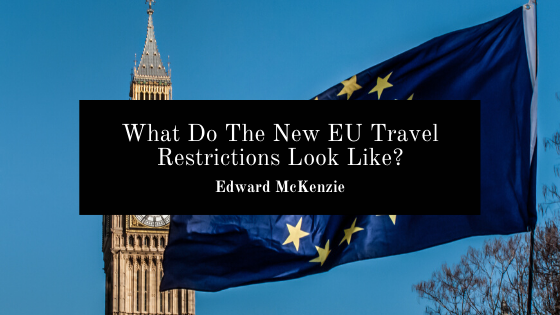In light of the COVID-19 pandemic, some jurisdictions have considered the benefit of the continued restriction of travelers as parts of the economy reopen. While they wish to further slow the spread of the virus and the disease that it causes, many economies are struggling after the shutdown. Now, governments must put into place policies that strike a delicate balance, and the European Union is no exception.
As of March 1st, the EU banned travelers from high-risk areas such as Russian and Brazil, but authorities have wondered whether Americans should also be on that list. While Americans are currently excluded from the travel ban, the failure of the country to contain the COVID-19 outbreak under the guidance of President Trump is alarming to countries in the European Union. The EU recently managed to get the contagious virus under a semblance of control and reopened travel between 27 of its member nations. Being added to the exclusion list would bar not just Americans but those people who are traveling from the U.S. from entering any of those countries. Currently, travel from the U.S. has been permitted as long as it’s deemed essential. This potential ban deals with nonessential travel.
As the European Union has dealt with COVID-19 and started to reopen, travel from some countries has been reinstated based on how those countries have health with the pandemic. China, Uganda, Cuba, and Vietnam were all among the 47 countries that passed muster by maintaining infection rates lower or equal to those of the EU. It’s quite the blow to the leader of such a developed country, not to mention its residents, to be placed on a list besides developing nations such as Vietnam or Uganda. But the move may be necessary if Americans refuse to take safety precautions that would slow the spread of COVID-19.
Even if travel from the United States is not currently on the restricted list, it could be added in the future. EU officials plan to revisit the list every two weeks as the situation evolves. Thus, it’s up to federal and state governments in the U.S. to bring down the infection rate of COVID-19 to ensure uninterrupted travel to the EU countries.
